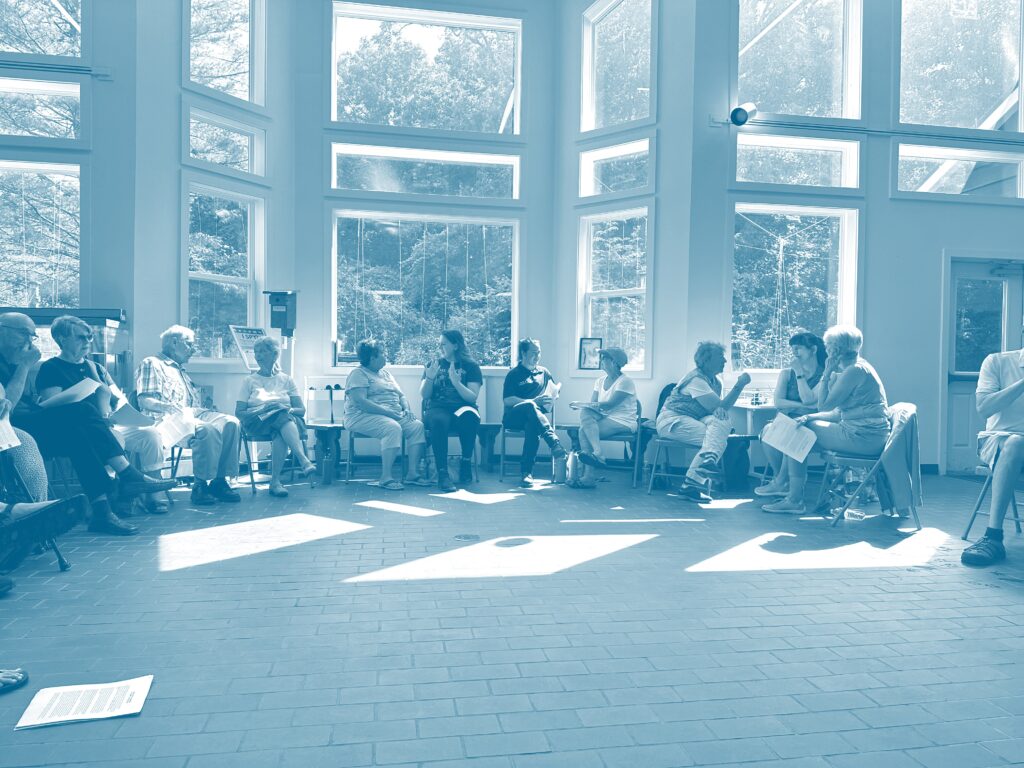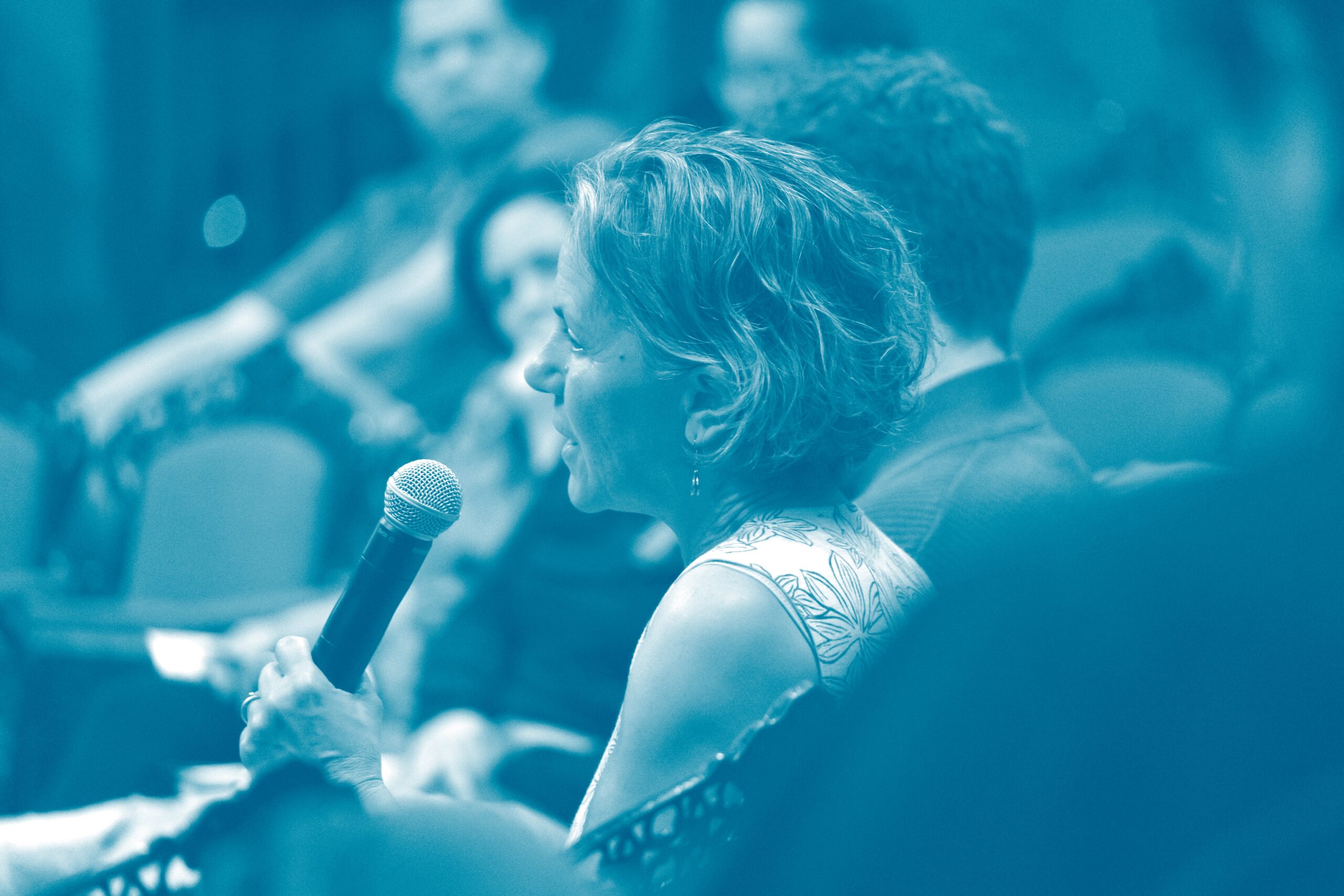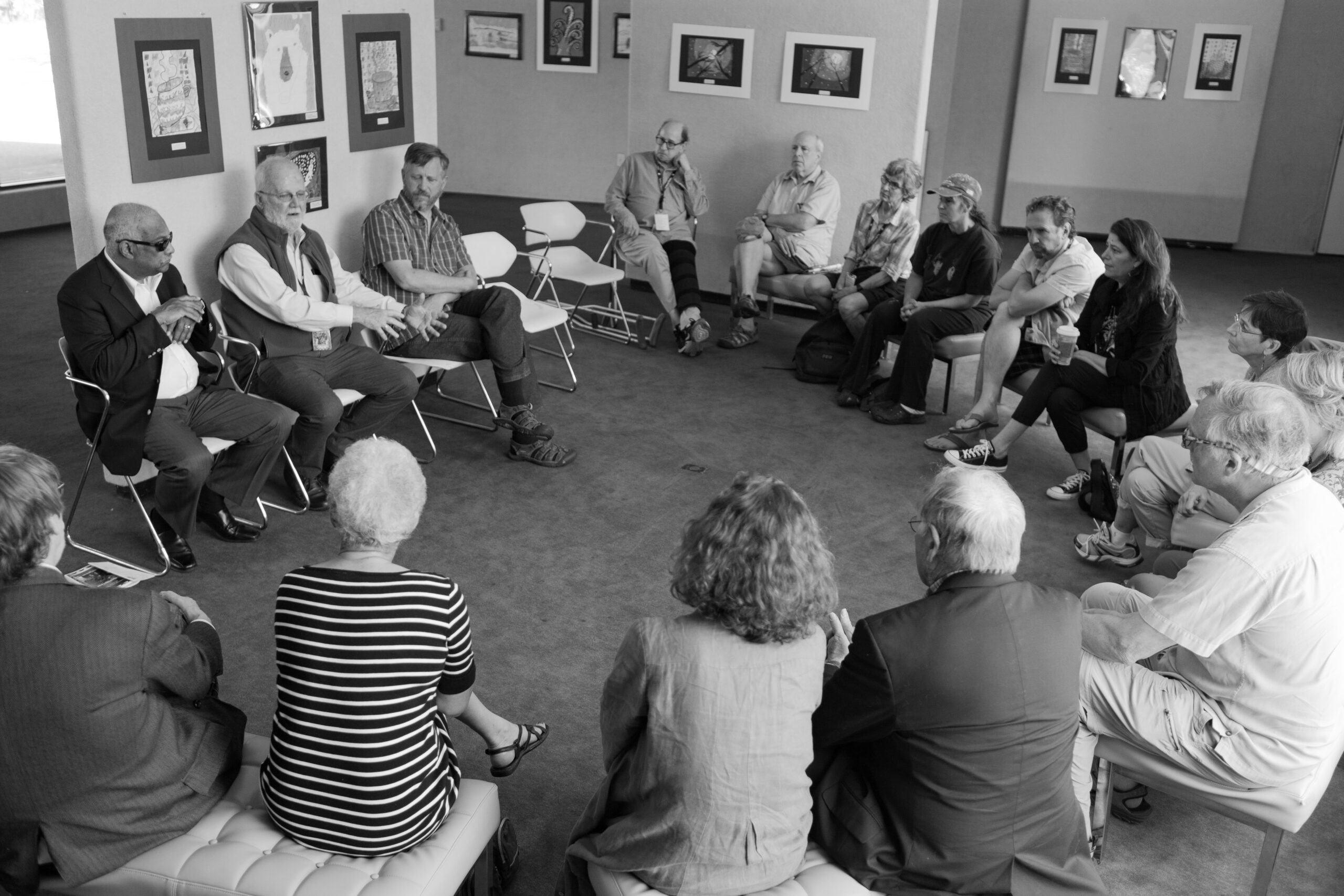by Joseph Murphy, Director of Strategic Partnerships
Community Conversations are exactly what they sound like: opportunities for people to meet and engage with one another over issues that shape society. HNY has hosted them frequently in recent months, and a just-wrapped, supersized edition to coincide with Banned Books Week at the New York Public Library serves as a good illustration of Why—and especially Why now?
Before diving in, here’s what you should know about Community Conversations.
Community Conversations aim to get people thinking—and talking—over texts, imagery, or even objects relevant to humanities themes.
They’re informal and open to all; no preparation or expertise is required. Trained facilitators kick off sessions with introductions and thought-provoking questions. Then, they take a seat at roundtables to let participants determine the course of conversations. At turns, facilitators serve as a guide for the exploration of challenging topics and as a coach, encouraging openness and generous listening to maintain an even volume across voices. Inevitably, people realize that the perspectives of others in the room are just as compelling as the poems, paintings, essays, etc. that brought them together.

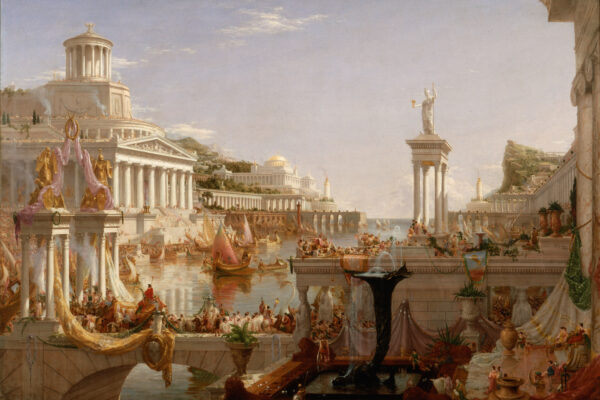
The series began in the 2010s but has evolved significantly, in parallel to HNY and the wider world.
In its original version as a grant program, organizations like Back to Basics in Buffalo and the Dominican Writers Association in NYC received funding to spearhead their own meetups. During the pandemic, we adapted the format for remote audiences in an effort to promote dialogue amid unprecedented isolation. As restrictions eased and New Yorkers re-entered a changed world, we continued to host Community Conversations at partner sites like the Alice Austen House in Staten Island and the Genesee Country Village and Museum in the Finger Lakes Region.
2025 is another pivotal year, and we believe that the humanities have never been more important.
At the heart of the program is our belief that conversation—open, reflective, and reciprocal—is a cornerstone of civic life.
Each session models fairness and humility. By engaging in dialogue, we exercise the habits of democracy.
For partners, the program offers a ready-made framework for high-quality public engagement that demonstrates leadership. Community Conversations are designed to be both scalable and personal—easy to host, but rich in impact. By activating accessible settings such as libraries, museums, and cultural centers this way, we aim to help communities rediscover what connects them, one conversation at a time.
The recent Banned Books Week series exemplified this work in practice.
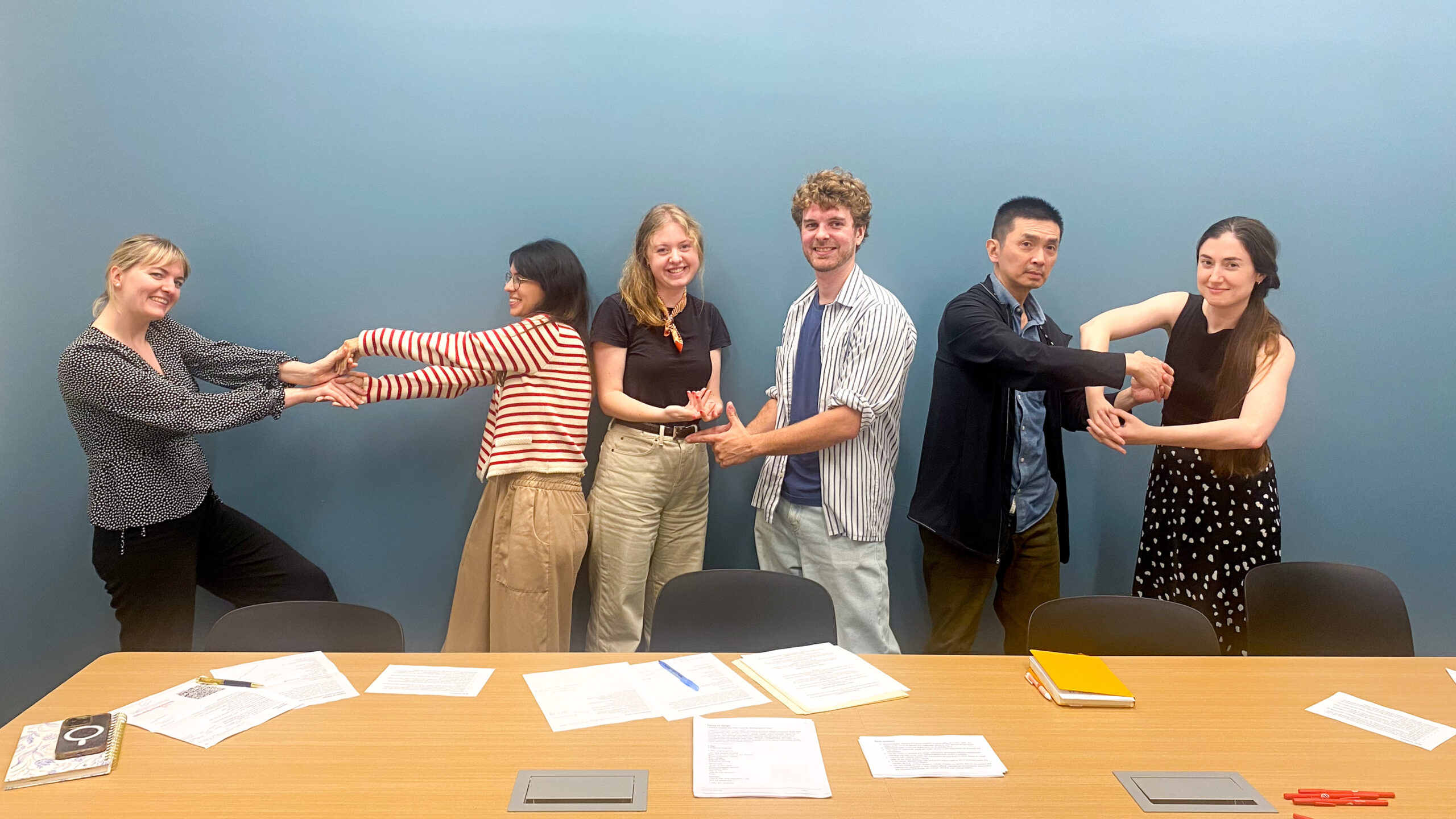
Banned Writers Unbound was a series of Community Conversations exploring what it means to speak, write, and think freely in a time of renewed censorship and polarization. The sessions emphasized the role of language in civic life.
Case in point: the opener, which homed in on Audre Lorde’s 1977 essay “The Transformation of Silence into Language and Action.” Attendees considered what happens when fear silences us—and what changes when we dare to speak.
Another program inspired by the upcoming semiquincentennial pondered the idea of revolution through three 1968 songs: The Beatles’ “Revolution,” Nina Simone’s track of the same title, and The Rolling Stones’ “Street Fighting Man.” Each presents a radically different view of the time; together they portray a diversity of perspectives. The program echoed how the simple act of listening—whether to lyrics or neighbors—can reawaken collaborative instincts.
Itself a collaboration with the Stavros Niarchos branch of the New York Public Library, Banned Writers Unbound transformed literature deemed too provocative at one point or another into dialogue. Community Conversations like these serve as a powerful reminder of what’s at stake when it comes to democracy and its lifeline: free expression.
